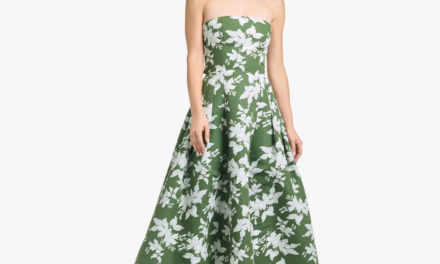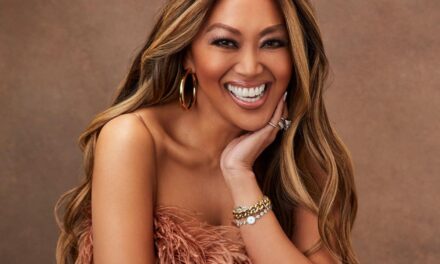The biggest party of Moira Johnston’s summer is this Friday. She’s ready to look and feel like a rat.
“I’m not worried about what I’ll look like, how I’ll feel in my body, or about impressing anyone,” said Johnston, a writer in her twenties who is working at a grocery store to pay the bills. “We are just going to have fun and it feels safe because we will all be like-minded people there.”
The Brooklyn party is a celebration of Rat Girl Summer, a TikTok movement that emphasizes living like a rat: Scurrying around the streets at all hours of the day and night, snacking to your heart’s delight, and going to places you have no business going to.
While it’s their first offline meeting, the mischief — that’s the collective term for a group of rats — has been encouraging each other to “embrace the rodent energy” after writer and content creator Lola Kolade introduced the term on TikTok in June. Since then, #ratgirlsummer has been shared more than 25 million times on TikTok. The trend is reminiscent of 2019’s Megan Thee Stallion-inspired Hot Girl Summer, but Kolade told The Washington Post that “the word hot triggers people to focus on their appearance in a way that Rat Girl Summer discourages.”
Rat Girls, who are spread out from Los Angeles to the U.K., are devoted to embracing themselves exactly as they are, shirking society’s expectations, at least for this summer, and abiding by Kolade’s core tenets.
The 29-year-old trendsetter’s four rules for Rat Girl Summer:
- Spend most of your time out of your home (she allows two days a week to “decay” and scroll social media in bed).
- Eat enjoyable and nourishing food that gives you energy to “cause mayhem.”
- Let yourself be ruled by whimsy rather than embarrassment.
- And most importantly, don’t overthink. If rats don’t think twice before stealing a slice of pizza and escaping across the subway platform, Kolade asks, why should Rat Girls?
Many followers told The Washington Post that the trend felt like a joke at first. But as Kolade added affirmations and created regular check-ins, the rat pack got on board, and as the summer began its sunset, Kolade felt ready to take the concept offline.
Johnston is attending the party with two friends: A 22-year-old “femme friend who has just had an epic break up and needs this wonderfully weird party to heal,” and a 28-year old male friend curious about what a Rat Girl Party entails. She said that being a Rat Girl appeals to her because “it asks you to explore who you are as a person instead of how you look to others.”
The movement is providing young people with a chance to step back and get in touch with themselves, said Aria Halliday, a professor of Gender and Women’s Studies at the University of Kentucky.
“I think Rat Girl Summer appeals to people because it’s a way of rejecting the idea that our self-worth and purpose should be based on what American society wants from us,” Halliday said. “It can be a summer of opportunity for people to investigate their own passions and figure out what they want, rather than what they should want.”
Halliday notes that despite allegations that the TikTok algorithm props up White creators, it is Black creators, and Black women in particular, who set summer trends.
“There’s something to be said about how summer trends on TikTok are set by Black women,” she said. “In the past and moving forward, it’s the Black girls leading the way to create popular language and trends.”
Rat Girl Summer joins a lengthy list of recent similar trends like Girl Dinner, Feral Girl Summer, Girlboss, Clean Girl Aesthetic and others. Some have critiqued the frequent invocation of “girls” in these trends as infantilizing toward women.
Halliday, however, said that the word “girl” has evolved to a larger meaning in today’s culture.
“If you are in touch with Black colloquialism, which you are if you are on TikTok, the word ‘girl’ can be ironic, or serve as a descriptor or an exclamation,” she said. “It’s not even necessarily a gendered term depending on how you use it.”
Indeed, the RSVP list to the Rat Girl Summer Party shows that many of those planning to attend present as male or gender nonbinary, said one of the attendees.
Many Rat Girls spread across the United States and other countries regret that they can’t make it to the party — after all, rats typically don’t scurry too far from their home base.
Liza Blackman, a bartender and content creator in Bedfordshire, U.K., told The Post that if she lived in NYC, she would be there, probably in some kind of rat costume, because she and her friends leaned into being Rat Girls this summer.
Blackman, 26, reveled in the many ways the trend could be interpreted. She said she first thought of it as a metaphor for the bleakness of the cost of living crisis in the United Kingdom — “Like rats, we are foraging for what ever food we can get our grabby little hands on” — before eventually viewing it as a push for mental wellness.
Kolade, whom followers call “Rat Girl-in-Chief,” said that trend is about allowing yourself “playfulness, spontaneity, and living in absolute freedom from diets, workout plans, aesthetic content or any kind of external pressure,” and that can mean different things to people.
For 23-year-old Kamille Suayan, a Philadelphia-based tech worker, being a Rat Girl means being curious, unbothered and loving, and caring for yourself over others.
“As women, we are taught to cater others’ feelings, and the rat girl concept rejects that and asks you to prioritize yourself,” she said. “It takes bravery and fearlessness to be unbothered by expectations others have of you.”
Aliya Bhatia, a policy analyst spending the end of her summer in New York City, said Rat Girl Summer appealed to her because it was about “unfiltered frolicking and having a carefree, anarchic summer.”
“We are living in a time of failing social structures and a literal rat problem across major cities,” said the 30-year-old. “Rats are resilient and able to scurry for basic necessities, and we are answering Lola’s call to do the same.”
Several other Rat Girls attending the party told The Post that they are excited about the party but would not comment because one rule of being a Rat Girl is feeling free to say no without a reason.
Trevor Boffone, the author of “TikTok Cultures in the United States,” said that the “Rat Girl Summer trend is exactly about not doing something because capitalism told us to do it, and only doing things you genuinely want to.”
Boffone said that the trend, which is centering “Black girl joy,” went viral because young people are over hustle culture, being undervalued at work, and playing the game the way their parents played it.
“Coming out of the pandemic, society wants us to go back to the old normal, but young people are saying they don’t want to meet society’s expectations anymore,” he said. “Being a Rat Girl is about dancing like nobody is watching.”
Kolade did not expect the Rat Girl Summer concept or the party to get as much attention as they have, she said.
“It’s been amazing to see that people are invested in my concept and believe in the idea enough to come out to the party,” she said, adding that the event is a collaboration with the dating app Feeld and she is using this opportunity to collect donations to support maternal health care for Black, Indigenous and people of color.
To Johnston, the online community shifting offline feels like the “when the girl’s trip finally makes it out of the group chat meme.” She can hardly wait for the party, and she thinks it’s just the beginning.
“The reality of Rat Girl Summer being the right way to live life will be hard to ignore,” she said. “It will be a lot easier to be a Rat Girl all year round.”




